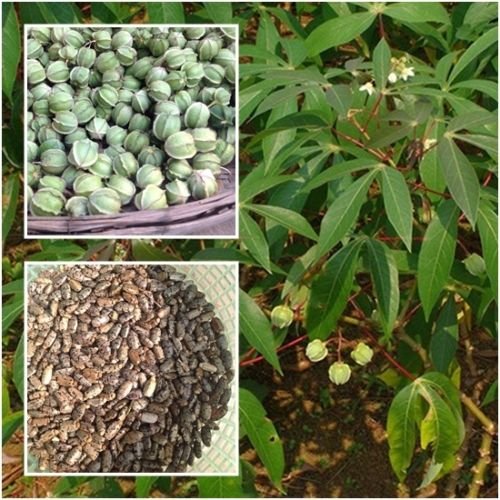60 commercial cassava seed entrepreneurs berth in Ogun, Oyo
The GIZ-funded Cassava and Maize Value Chain Project has established 60 commercial cassava seed entrepreneurs in Ogun and Oyo states as part of effort to revamp the seed system and create jobs in local communities. The project, which is under the Green Innovation Centre of GIZ, was created in response to the economic fragility due […]

cassava seed
The GIZ-funded Cassava and Maize Value Chain Project has established 60 commercial cassava seed entrepreneurs in Ogun and Oyo states as part of effort to revamp the seed system and create jobs in local communities.
The project, which is under the Green Innovation Centre of GIZ, was created in response to the economic fragility due to the COVID-19 pandemic which hurt the seed system of several crops, including cassava; and the livelihoods of millions of farmers, especially women and youths that depend on the root crop.
- Bishop of Wusasa advocates for declaration of state of emergency in North
- Emirate group raises alarm over sale of ancestral homes
Using the BASICS model, researchers screened and selected the commercial seed entrepreneurs and linked them to IITA GoSeed – an early generation seed company at the International Institute of Tropical Agriculture (IITA) – for the procurement of healthy cassava seeds of improved varieties.
“We are glad that the project is establishing a sustainable seed system for cassava in these key states (Oyo and Ogun), serving as a model to other states,” Dr Godwin Atser, IITA Project Leader of the Cassava and Maize Value Chain Project, said.
Last farming season, prices of cassava stems rose to a record high of N1,500 per bundle, up from N400. Prices were partly driven by increased demand for improved varieties from growers and disruptions caused by COVID-19.
The Cassava and Maize Value Chain Project, working with resource-constrained farmers, facilitated the planting of over 1.2 million improved cassava cuttings on 60.95 hectares.
Dr Mercy Diebiru-Ojo, IITA Component Lead for Cassava Seed Systems, said the intervention offered hope for increased income and food security in the cassava sector in Nigeria.
Mr Patrick Akpu, the Project Support Officer, attested to the farmers’ joy when full packaged trainings were conducted.
Mr Akpu said, “The farmers applauded the project as one of the best things that has happened to them as it is very practical and involving.”
In 2020, demand for improved disease-free cassava stems was between N6bn to N10bn after the CBN Okayed the use of improved stems.
Mrs Esther Solomon, one of the cassava seed entrepreneurs who is growing Foundation Seeds, said investment in cassava seeds made a good business decision for cassava farmers.
She said, “With the cassava seed farm, I have the option of expanding my hectarage, as well as selling stems to other farmers in alignment with the National Agricultural Seed Council (NASC) standards.
“Besides, I am so excited because my cassava fields are looking great.”
Last year, Mrs Solomon was among those that were looking for improved stems to buy after she partook in the GIZ Farmer Business School. Before onboarding Mrs Solomon and several of her colleagues, the project trained the seed entrepreneurs on weed control using the Six-Step Cassava Weed Management and Best Planting Practices toolkit. The capacity building effort contributed to the success of Mrs Solomon and her colleagues.
